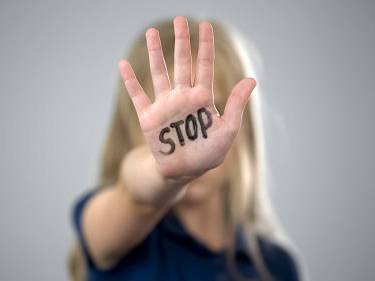Children left vulnerable as parents avoid teaching consent

Children left vulnerable as parents avoid teaching consent

- Over half of parents believe it is only appropriate to start teaching children about consent and their body after school age, leaving children aged 0 – 4 vulnerable to sexual abuse
- Less than half of Australian parents, carers and grandparents have been open with their kids about consent and their body, despite 89% of adults saying it is the parents' responsibility
- This Child Protection Week (5th – 11th September 2021), Act for Kids is encouraging parents to talk to their kids about consent from a young age and are advocating for improved education for parents and mandated protective behaviours programs in schools to help keep Australia's future generations safe
New research reveals less than half (44%) of parents, carers and grandparents have been open with their children about consent, despite 89% of adults saying it is the parents' responsibility to educate them.
The new data from Act for Kids also found over half (56%) of Australian adults believe it is appropriate to start teaching children about consent and their body after school age[1]. However, this revelation raises serious concerns as children aged between 0-4 are most at-risk of abuse and neglect in Australia. In 2019-2020, a staggering 11,700 infants under the age of one received child protection services[2].
"The research shows there is a significant lack of knowledge about why it is important to talk about consent, relationships and body ownership with children in the first five years of their life," Act for Kids Chief Executive Officer Doctor Katrina Lines said.
The concept of bodily autonomy continues to be misunderstood, with 69% of Australians believing that adults shouldn't have to ask children for permission before they touch them.
Worryingly, more than a third (36%) of parents with children under the age of 18 doubt if their child understands what consent is and only 29% of parents admit the words penis and vagina are normal in their child's vocabulary.
"Unfortunately, we know from the research not everyone is having conversations about consent which is leaving too many children vulnerable.
"The early stages of a child's life are crucial for development. It's where they grow physically and emotionally, but also begin forming social connections.
"Teaching children consent from a young age can be as simple as using the correct language for body parts rather than euphemisms, or explaining your actions in your child's routines, such as bathing. Rather than just forcing them to bath, try explaining what you're doing and why it is important," Dr Lines explained.
As the National Office for Child Safety continues to develop the National Strategy to Prevent Child Sexual Abuse, parents are encouraged to educate their children on consent and the correct anatomical language for all body parts. This comes as sex offenders were found to be less likely to act on a child if the child knew correct names for their body parts[3].
This year's Child Protection Week theme is 'Every Child In Every Community Needs a Fair Go' and Act for Kids strongly believes every child deserves a fair go when it comes to protecting their own body.
This Child Protection Week (5th – 11th September 2021), Act for Kids is encouraging parents to talk to their kids about consent from a young age, using age appropriate language.
The organisation joins other child advocates, including Chanel Contos in calling for improved education for parents and mandated protective behaviours programs in schools to help keep Australia's future generations safe.
[1] The research by Act for Kids was carried out on a national representative sample of 2,008 Australians aged 18 and over in August 2021. Methodology: The data sample was weighted against ABS data for age, gender and location using an online survey that is independently conducted and verified PureProfile.
MORE



